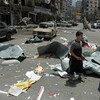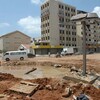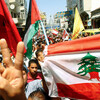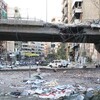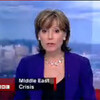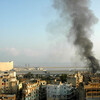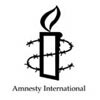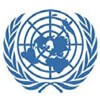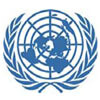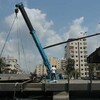
In Jerusalem, UN team holds 'intensive and productive' talks on current crisis – official
18 July 2006
A member of the United Nations team dispatched to the Middle East to defuse the current crisis said today in Jerusalem that talks with senior Israeli officials were “good, intensive and productive” and the dialogue will continue in the coming days. “The UN delegation has presented concrete ideas on how to resolve the current crisis and reach an end of hostilities,” Terje Roed-Larsen, a member of the team led by Vijay Nambiar which also includes Alvaro de Soto, said in a statement following their meeting with Israeli Foreign Minister Tzippi Livni. Read more about In Jerusalem, UN team holds 'intensive and productive' talks on current crisis – official
